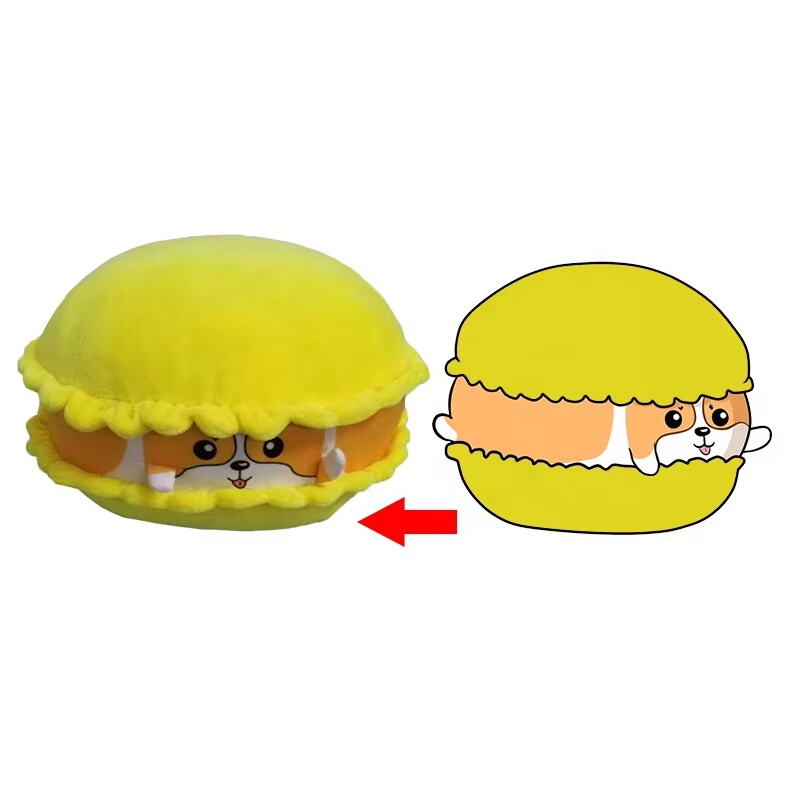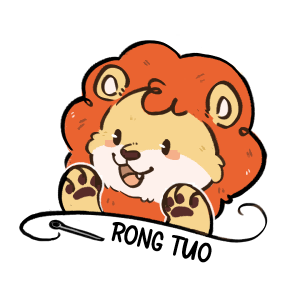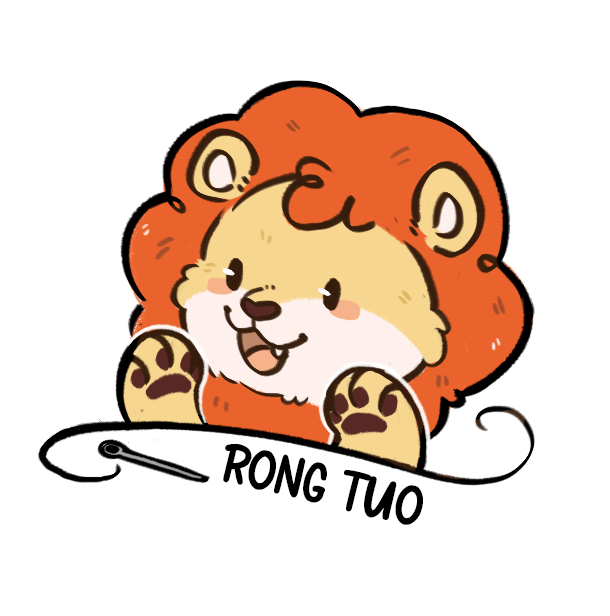Il-Connession Emozjonali Bejn L-Iddin u Il-Tojagħ Pluš
Għaliex Il-Tojagħ Pliġġi Diventu Kompannji Għal Dħul Iż-Żgħar
Il-ġugarenni tal-memn tajjeb jingħdew lil ħabib etern fir-rebħa minħabba li jilħqu dik il-bisenn ta' ħtiġijiet emozjonali li ġejjin mir-riħanijiet tal-infanzja. Dawn l-ġugarenni imbottiti jippermettu lit-tfal iżommu xi ħaġa bil-fatt meta jkunu bżonn taħriġ jew xi ħadd biex jitkellem miegħu. Studiji ripetuti juri li t-tfal li għandhom ġugarenn tal-memn f'avvantaggi jikbru meglio mal-ansjetà u jibnu relazzjonijiet iktar solidi mad-dinja madwarhom. Meta l-ħaġijiet isiru meqjusa fil-lejl jew f'mumenti diffiċli, li jkollok dik il-kumpanija tiepida u marrara ħdejnkom tagħmel id-differenza kbira. Il-kbar dejjem jibqgħu jaħbu dawn iż-żoni tal-infanzja ħdejn post importanti, mhux biss għall-veduta iżda minħabba li jġibru ħaġa ta' valur sentimentali minn snin qabel. Esperti psikologi jippuntaw kif il-konezzjoni tagħna ma dawn l-ġugarenni verament tnaqqas il-kumpanija tagħna emozzjonali, tagħmel iktar faċli n-navigazzjoni ta' bidliet kbar fil-ħajja mingħajr ma nsemmu nies persa.
Il-Tojagħ Pluš Bħala Oġgetti Komfort fil-Temp ta' Stress
Ġewwaċi bl-ajru ħalqin joperaw bħala ħabib ta' kumfort għal ħafna nies, jipprovdu ruħhom xi ħaġa bella li jispiċċaw meta jkunu f'ħajja diffiċli. Studji juri li dawk li jgħammru ma' dawn il-ħabibiet ħalqin tendu jibdew iktar qalila u iktar siguri f'intern. Esperti ta' s-saħħa mentali spissu jippuntaw kif dawn il-ħabibiet veluri jgħinu lill-bnedmin jaħdem ma' sitwazzjonijiet tristi minħabba li jispiċċaw hemm qies sew mingħajr ma jidom sew mistoqsijiet jew jiektbu lil kulħadd. Meta xi ħadd ikun senti ruħu iktar anxjetà jew ikkul, ikollu ħaġa fiżika li jismu għall-ġid jista' jgħawwen idifferenza. Għalhekk ħafna ospedali jipprovdu orsijiet tal-ġid għall-istudenti meta jikbru, u għalhekk adulti jżommu ħabibiet preferiti minn tfiltiethom sa meta jkunu fis-30ijiet u iktar.
Nostalžija u Potenzjal ta’ Triggri Memuri tal-Ħabbajiet
Il-Ġid bliet qatt ma tħallien tużżan il-feeling warms minn tfal, veru? Meta nibżu l-orju tal-ibbuzza jew inżammu rabbu logħob, hija bħall-vjaġġar bil-temp għall-emozzjonijiet tagħna. Il-riċerka tindika li l-iktar ħal ta' ħabta ma 'dawn it-taħżiżi nostalgiku jippermetti livelli ogħla ta' saħħana u jagħmel il-bnedmin jibżu aħjar dwar ruħhom. Ejja nikkonsidra l-Sarah li tibżu l-elefanti tagħha minn tfal fuq il-ferżi wara li marrtet għall-università minn belt oħra. Spiss il-bnedmin jgħidu stori li jibżu l-Ġid preferiti tagħhom waqt iż-żmien iż-żgħar bħal tisrira jew bidla ta' post tax-xogħol. Dawn il-mikiżżi jingħaqdu ma' ħajjin emozzjonali, jikkollegawna ma' iż-żmien iktar saħħan u jagħmlu l-istress ta' kuljum jibżu iktar bilanċjat.
Is-Ssieħa Dietro Il-Ġogħliet Tal-Tojagħi u L-Iżvilupp Emozzjonali
Ir-Releass ta' L-Oksitoċin u Komfort Fiziku
Il-lukk ta' peluċħ jikbru affettwa verament kif insibu emozzjonalment peress li jagħġdu l-koerpi niesu jipproduċju l-oxytocin, li nies jsejħlu l-ormoni tal-ħubb. Dan l-ormon jgħinna ninsabu iktar fiduċji u konnessi ma' oırajn, essenzjalment jaħdem kontra l-istress u l-mnaqqas. Riċerka turi li ħux li timsi xorti bl-ħanina jista' jnaqqs ir-ritmu tal-qt heart u jirriħ il-feeling ta' ansjetà, u jagħi nies sens bl-aktar serenità. Psikologiļisti ħafna jitkelmu dwar l-importanza tal-kuntatt fiŸiku fis-semm tal-ħeļija emozzjonali. Meta xiaddu jillem xi ħa juri sensazzjoni ta' sigurament u protezzjoni, li tnaqqs l-istress u b'mod generali tagħil il-ħajjin iktar sodisfacenti għal-biżien.
Oōetti Tranżizzjonali fil-Psikoloġija (Teorija ta' Winnicott)
Donald Winnicott ħall dritt l-idea tal-oġġetti trasizzjonali darba u nies, u nixbet li huma importanti ħafna għall-itfal li jikbru. Fikri fuq l-orsijiet tal-peluche jew il-kulzijiet iffavuriti - dawk iċ-čikkuit tagħinu jibbarru l-fwar bejn jkunu totalment dipendenti mill-ġenituri u jibdew jistudjaw il-mond bl-idejn tagħhom. L-itfal jinsibu kumpurtu f'dawn l-oġġetti konnosxuti meta jilgħu jikbru ħajjin ġodda. Studiji kienu meqjuda fuq dan ukoll, u dak li l-istudjużi wrew huwa interessanti - ħafna nies għandhom xorta li jibqgħu attakkati għall-preferiti minn wħudethom sa meta jkunu adulti. Dawn l-oġġetti karaġġati ma jirreġġbux memoriji biss - iżda tagħinu ukoll biex jimmexxu l-istress u l-ansjetà meta jilgħu bidliet kbar fil-ħajja. Xi nies jispiċċaw lis-semmajn il-peluches jew il-kulzijiet speċjali tagħhom minn wħudethom sa meta jkunu adulti għaliex sempliċiment jingħataw ħajja tajba, u joperaw bħala linji emozjonali meta jkunu f'ħajjin diffiċli.
Studiji dwar Tojgeti Ponduti għal Ibrattament ta' L-Anxjetà
Ħafna riċerka reċenti tipprinta xi ħaġa interessanti ħafna dwar il-karaw dwar l-animali bil-piż meta jkunu meqjusa biex jittrattaw l-ansjetà. Dawn il-lukkijiet jipprovdu effett ta' pressjoni soqfa li tibda turi li tista' tnaqqas iktar l-ansjetà u tibda tħallas ir-relaġġ. Tista' tħassah bħall-effett ta' ħabsa ħafifa madwar il-ġisem, li tnaqqas l-attivita' tas-sistema nervuża u tnaqqas l-istress. Persuni li jpruvaw il-karaw jirrapportaw ħafna effetti pożittivi. Sarah minn Ċikago ħolqetni fix-xejn dwar kif il-karaw tagħha ħallasha tnem wara attakk tal-paniku wara l-ħaddi. Ħafna oħra jiddiskutu esperjenzi simili meta jkunu jinsabu f'ġranet diffiċli fil-iskola jew fix-xogħol. Esperti ta' sajħat mentali qiegħda jinkisru għall-irkomandazzjoni ta' dawn il-lukkijiet bil-piż bħala parti minn strateġiji biex timmanjaġġa l-ansjetà, speċjalment għall-istudenti u l-ġdid li jkunu jġib ruħhom mal-problemi tas-sensuri.
Meta tħares lejn il-fatt li l-ġewwani pjush jgħinu bil-għeluq emozzjonali juri ħajja interessanti dwar il-bżonn tagħna għall-kumfort. Dawn il-ġewwani ħfief verament jagħmlu ħafna meta jħossu l-livelli tat-tensjoni u l-ansjetà, jgħinu lit-tfal (u nies kbar ukoll) jaħbu barra minn emozzjonijiet tagħhom, u jagħmlu l-ħajtiet tal-ħajja iktar faċli biex jittrattaw. X'inhi dak li jagħmelhom b'tali mod speċjali? Eħna hemm l-aspett fiziċi tat-tajjeb ruħkom ħar tiegħu, imma hemm ukoll dak li jirrappreżentaw. Ġewwa pjushi jista' jfisser sigurtà, ħolq, jew anke biss il-nostalġija. Din l-imġiba ta' tħoss sew tajjeb fisikament u waqt li tkun konnessa emozzjonalment hija x'lejżu nies ta' kwalunkwe età jibqgħu jirritornaw lid-dawk ġewwani pjushi meqjusa tagħhom meta jkunu f'ħajtiet diffiċli.
Iżżejjiegħ: Msallta Tojagħiet Plaš f’Ġemsijiet Perżonali
Minn Il-Ħarsien Illeġati għal Awwienu 3D: Tojagħiet Mskonti Ċustomi
Meta tifel jikkurbi ħaġa straordinarja u jara din tintużi f’ġilda vera, dan juri l-imaginiżazzjoni tiegħu f'mod li ma jistax jinkisbet bil-kelma. Dawn il-fabbrikanti ta' ġildiet speċjali jibdlu l-iskizzi sempliċi f'versjonijiet mruni u taħżin ta' kwalunkwe ħaġa li tidher fil-moħħ tat-tifel. Ħafna ġenituri jgħidu stori dwar kif dawn il-ġildiet jingħataw ħba l-assocjar profondi ġewwa l-familja. Ejja nħarsu lit-Torneż, pereżempju, il-bintaqqa tagħhom ħarabet monster stranju b'tliet kapudi u strisce ta' rainbow. Il-kumpanija sarret il-ġilda eżattament kif ħarabet, inkluż il-ħajli dettalji. Issa din il-ġilda tinsab fuq il-moqos tagħha kuljnies, mhux biss minħabba li tidher bel maħżuna imma apparti minħabba li tirrappreżenta kollha l-ħajn li kellhom waqt li kinux jagħmluha flimkien.
Opcini ta' Materjali u Akċessorji għall-Diżajni Unikki
X'inhu li jippermetti li l-ġewwaniwijiet tal-peluche personalizzati jkunu tant speċjali? Ħabta kollha tiddependi mill-materjali differenti u l-aċċessorji li nies jistgħu jagħżlu meta jikkostitwuhom. Ħafna minn dawk li jikkostitwuhom jafu wkoll jikbru fuq is-sikurezza, għalhekk ħafna drabi jwettqu fuq materjali ipoalergeniċi u dawk iktar rispettosi tal-ambjent. Meta xi ħadd jżid il-ħwej u l-isem jew dik l-ġid ta' ħarsa oħra, dak li jitwieldu huwa verament uniku tal-ġeneru tiegħu. Dawn isiru oġġetti ħażin għal ħafna nies. Id-disinjaturi tal-logħob jafu dan sew. Dways jistqassu l-importanza tal-materjali ta' kwalità tajba minħabba li għandhom ir-ruwwol ewlieni kif nintixru emozzjonalment mal-ġewwien tal-peluche tagħna.
Ħafna Pets bli Plush Repliki Rerili
Il-fabrikazzjoni ta' kopji softwar tax-xemgħijiet tagħna tista' verament teħdem bħala appoġġ għall-bnedmin meta jikbru jmissu lit-tajr u l-annimali domestici. Dawn il-bambol tal-ħażen spiss jingħaqdu f'ħafna ħalqiet bħala oġġetti ta' valur li jippermettu lil dawk li ħelu jikbru jmissu lit-ħaywan li kien jikkumpagna ruħhom. Studiji differenti wrew li dawn il-bambol verament jippermettu li t-ħolqa tal-ġrief jinħassu iktar ħafif. Huma jivvjaġġaw bħala qasma bejn il-passat u l-preżenti, fejn jispejjaw il-mumenti l-iżjed li kien hemm bejnna u bejn lit-annimali tagħna. Jien lest nari stori fejn lil abram u għataħ ħelu jiddeżkrivu kif l-imġab ta' dawn il-bambol tal-memorja kellhom appoġġ fin-naraw li kienu niesħin wara l-immiss tal-annimali tagħhom. Xi wħudhom anke jżomma l-bambol fuq il-mogħġib jew jibżgħuhom madwar bħala ħġieġ ta' fortuna, u jinsibu konsolazzjoni fit-tessitura u l-forma familiaris tagħhom.
Keepsakes Pluš fid-Desenviment tal-Bambini
Binifiku soċjali dwar il-ġoxtra immaginattiva
Il-Ġewwiena mifruxa tajjeb jgħinu lil it-tfal jikbru kreativi waqt il-logħob ta' immaginazzjoni, xi ħaġġ li jipprova l-imagini tagħhom u kif jinteraġixxu ma' persuni oħra. Meta l-ittestra tipplej lawr miegħu ħbab lawr, jibdew jifhmu kif jimmexxu sitwazzjonijiet soċjali differenti filwaqt li jikkupraw modi importanti biex jitkallmu u juru empatija. Riċerka mgħamla fl-Illinois wrew li t-tfal li spiss jilgħbu logħob ta' immaginazzjoni tendu jifhmu aktar malajr dak li l-oħrajn jibżgħu ġewwa. Ikkunsidra dan b'dal mod: tfil jista' jaħżi l-ġewwiena preferita tiegħu u jipprattika jitħaddet bil-karigi biex jingħata ħajja ħabba immaginarja, essenzjalment jerrepeti kondotta dolċi mingħajr ma jaf. Din il-lagħab tagħti t-tfal ħafna ċansijiet biex jepprova ruoli differenti f'ambjent sigur, jibni l-istima tal-ġid u ġlied tal-ħiliet soċjali b’mod proġressiv.
Oġgetti ta’ Sigurtà għall-Regolazzjoni Emozjonali
Il-Ġildani bl-ajru huma infatti oggetti ta' kumfort importanti ħafna għall-istess bnedmin li jkunu jikbru emozjonijiet kbar u jitgħallmu kif jarritornaw minn situazzjonijiet diffiċli. Il-għenien ma jikkunsidrawdan dan, iżda dawn l-ammixxijiet iżgħar joperaw bħala dawk li l-esperti jsejħulhom "transitional objects" (oġġetti trasizzjonali). Jgħinu li jżommu l-istess tfal bilanċati emozzjonalment meta l-ħajja tibda tinstressaw jew meta jkunu hemm bidliet improvvisi. Ricerka ppubblikata f'ġurnalijiet bħal British Journal of Developmental Psychology turi li l-avval ta' ġildan me preferut jista' jnaqqas l-ansjetà u jagħti lit-tfetiem xi ħaġa ta' kumfort li jistgħu jimmassaru. Esperti fi żvilupp tal-istess tfal jindikaw li dawn l-oġġetti jipprovdu lit-tfetiem xi ħaġa reali li jistgħu jilmsu meta jkunu jmissu bil-kul. Il-konezzjoni fisika hi din li tibda tkun linja emozzjonali għal ħafna tfal, u tittest li jitgħallmu kif jikkontrollaw iktar u iktar il-feeling tagħhom b’ħin u jikbru iktar resistenti globalment.
Ispitt mill-lingwa bil-kompanjonijiet tas-silent listening
Id-drawwiet tax-xotton verament joperaw sew jekk jinstab ruħhom jgħinu lil it-tfal jilgħu ċ-ċerimonji tal-lingwa waqt li jħarsu storiji jew jitkelmu. Studju mill-Ġurnal tal-lingwa tat-tfetiem wetaq li t-tfal iktar żgħar tendu jitkelmu ħafna mal-ħbabijiet puffy tagħhom u din l-imġiba ta' soġġett ta' ħajjin tibni verament il-ħiliet tal-lingwa tagħhom b’ħin. Meta t-tfal jkollhom dawn id-diskussjonijiet mal-ġużaw tagħhom, m'hemm ebda pressjoni involvuta u apparti ngħataw ħiliet biex jitmu mill-ġdid u jibbnu storiji sempliċi. Lil maestri dan jidheru ħafna waqt l-attività tal-ħaruz storiji fejn xi tfal ħafna li normalment jibqgħu isfel jibdew jitkelmu iktar minħabba li jidher li jiddeċidu lil ħabibijiet tax-xotton lisenti tagħhom minflok lil oħrajn. Il-ġenituri jirrapportaw li ħaslu miglioramenti reali kif il-fluwidità tal-lingwa tintilef u kif il-konfjansa tagħhom tibda tibda wara l-ħulqu regolari mal-ġużaw puffy.
L-Inkar minn Il-Bliettagh u L-Keeptakes: Jibdew il-Stigma
Ilsuġġezzjoni għall-Wħud Modern
Ħafna nies kbar isiru waħdim f'dawn ijiem, speċjalment minħabba kif il-ħajja qed titmi ħalqa madwar kulħadd. Il-ġewwani ħofren qiegħda jingħata ruħha bħala ħolqa għal ħafna nies li jkombattu ma' din il-problema. Xi nies verament jaġġbuhom dawn il-miċħubin rjali meta jkunu bżonn jibdew iktar tajjeb, u hemm provi li turi li l-ġużż li ġewwa oġġetti konsolanti verament jgħin biex tonqas il-ġid ta' waħdija jew stress. Ippensja, per eżempju, f'xi jġib ruħu meta xi ħadd jaġġb ruħu l-animali preferiti tiegħu - jidher li dan jibda l-ħemmalijiet tiegħu li jġibu ruħhom iktar qalma ġewwa. Aħna nbidu nisgħu qċaħ il-ħafna stori li ġejjin minn nies kbar li jġibuhom il-miċħubin ħofrin tagħhom meta jkunu f'perjodi diffiċli tal-ħajja. Waħda mill-isfori, nisa wera l-ħaddieta tagħha l-aktar u nimmien ma' l-ors tagħha minn wieden kollha l-lay il-ħajja tagħha tibda tajjeb. Din u stori oħra bħal din juru s-sabiba kif il-ġewwani ħofrin jibqgħu importanti saħansitra wara l-età tal-adolesċenza.
Rikuperazzjoni tar-Rabbata u Lavoru tal-Bambin Intern
Il-Ġewwieni ta’ peluċċi nuru ħelp verament kbir meta xi ħadd jista’ jirġa’ jikbru wara traġedja u jaħdem fuq problemi tal-adolescenza. Ħafna kunsillieri jżommu ġewwieni ta’ peluċċi waqt is-seduti minħabba li nies iktar predisponibbli jaqbadu meta jkunu jimsu ħolqu ta’ kumpaġnija. Esperti kliniċi jappoġġjaw dan l-approċċ minħabba li dawn il-ġewwieni jippermettu lil pazjenti jaqbadu b’mod sigur dwar il-ġisien li normalment kienu jieħdu magħhom. Apparti hekk, hemm stori veriti li ħarġu fuq iktar. Waħda minn dawk kienet imrana li kienet tibqa’ ħaya wara ġlid fis-sewwa u b’mod gradwali ħadet tħaddet mal-kunsillier tagħha waqt li kienet taqbud l-os teddy, u b’mod gradwali rikonektat ma’ ħwieni ta’ niesha li kienet iddeħlitha għal ħafna tul. Dawn l-oġġetti ħfief jibnu konnessjonijiet importanti bejn id-diffikultajiet tal-lum u l-esperjenzi tal-passat, u jagħmlu l-proċess ta’ ġid iktar faċli għal dawk li jkunu jikbru minn traġedji profondi.
L-Ikkollezzjoni ta’ Tojajżi Komprejjament Kif Hobbi Terapeutiċi
Helaq iktar u iktar nies kbar jitgħallmu jaġġbuh ħġieġ ta' peluċċi, jinsibu hekk divertenti u tajjeb għall-saħħtali mentale tagħhom. Nies jitkelmu kif din l-attivita tagħgħibhom tista' tnaqquhom u tnaqqas il-pressjoni meta jkunu tajjeb stressati. Għal ħafna, l-ġbir ta' diversi tipi ta' peluċċi jġib ruħu ħajja ta' rilass li jattendu biex jagħmlu, u jagħtihom sentament reali ta' kompiti u kreattività. Ħafna minn dawk li jaġġbuh peluċċi jiddeżkrivu simptomi ta' tib mistens f'ħajjin wara li jibżgħu ħin ma' ġbirhom, speċjalment meta jkunu qed jaqbadu perjodi diffiċli. Biss l-ibda ġbir ta' peluċċi jista' jġib ħlas għal ħafna nies, offrendalhom mod utli biex jiddejqu ħajjinhom u l-enerġija tagħhom, li fl-aħħar, tagħmilhom jisibu ruħhom iktar affettwali u saħħin.

Kif tugħżel il-Ġogħonija tal-Pluš Skont Għall-Ispriża
Fatturi: Tal-Materiali, Id-Dimensjoni, u Livell ta' Kustomizzazzjoni
Kważi jekk tibtek fuq il-pelush ideali tfisser li trivedi ħafna fatturi importanti inklużiv kif tigħmilna, id-daqs tagħha u jekk tista' tintlagħab ruħha b'mod partikolari. Il-leħen tal-pelush huwa importanti ħafna għall-kumfort u biex toħloq dik il-linka emozjonali li nies kollha jixtiequ. Ħuha b'dan il-mod: materjali marrari u marrari ħafna drabi jġibu ġewwa sens tal-ħut u s-sikurezza, u hekk kif ħafna nies jħobbuhom. Id-daqs huwa importanti wkoll - xi ħadd jista' jirid iżgħar biżżejjed biex jingħanqu miegħu fil-lejl, filwaqt li oħrajn jippreferu dawk iżgħar li jidħlu b'ħiliet fuq ir-rakel. Il-pelush personalizzati jipproduċu linka partikolari aktar, speċjalment meta jinkludu isem, kuluri preferiti, jew anke dettalji żgħar li niftakruhom f'mementi għall-ħajr. Allura meta tkun qed tixtri lil dawk il-pelush, ħu ħin biex tevalwa dawn il-fatturi differenti sakemm ma jinstab l-ideal u jikklikka emozzjonalment u fil-prattika jispiża x’jum għall-bidu.
Produzzjoni Etika u Sertifikati ta' Siguri
Meta ddawn l-aktar xejn, meta tantjib il-kwalità tal-fabbrika u s-sertifikazzjonijiet ta' sigurtà huma importanti ħafna. Il-kumpaniji li verament jikbru dwar il-persunal tagħhom u l-ambjent spiss jipproduċu prodotti ta' kwalità aħjar filwaqt li jappoġġjaw stipendji ġusti u kundizzjonijiet ta' xogħol adegwati. Is-sigurtà hija problema importanti oħra wkoll. Fittex sertifikazzjonijiet li jwettqu li l-materiali ma jkunux fihom sustanzi kimiċi perikolużi, partikularment importanti jekk il-ħalq tejjeb ma jilgħabu magħhom. Aktar nies qed jibdew jinduna kif il-għażliet tagħhom bil-fornitur jaffettwaw il-mondu madwarna. Tixrob minn marki li verament jikbru dwar is-sostenibbiltà u s-sigurtà tat-tfal tagħmel sens fuq aktar minn livell wieħed, tipproteġġi kemm il-pjaneta tagħna kemm il-familji tagħna.
Isseħħ Plush Traits ma’ Dawk Emozjonali
Jaf liema karatteristiċi tal-oġġetti molli jikkonnettu mal-ġewwa tagħna jagħmel iktar faċli li tagħżel l-annimali molli perfetti. Ricerka psikoloġika tiblagħna li kuluri u tessituri verament jaffettwaw l-umuri - l-annimali molli blu tikkalma nies, filwaqt li l-ħolquwa super mellema tigħti sensazzjoni tajba fuq il-ġilda. Iċċunsidra liema tip ta' emozzjonijiet xi ħadd jixtieq meta jagħżel l-annimali molla li jibżgħu miegħu. Hemm x’jixtiequ nirriposa wara ġurnata diffiċli? Hemm bżonn taħdem biex tinniedi l-istress? Jew forse jixtiequ biss xi ħal ta’ saħħa? Teħid tal-karatteristiċi tal-annimali molli għal dawk l-emozzjonijiet tagħmel l-esperjenza ta’ ikbindu iktar sodisfaċenti b’ħarġ fit-tul. Nies li jaqbdu dan l-ikbindu korrettament spiss issibu li l-annimali molli tagħhom isiru oġġetti ta’ kumfort veri fil-ħajja ta’ kuljum.
GĦILQA TAL-DOMANDI Sezzjoni
Għaliex in-nies jagħmlu tojajj għal dawn il-vita?
In-nies jagħmlu tojajj għal dawn il-vita għax l-attacht emotiv u in-nostalgija magħrufa bħala mhux biex jgħibu sensazzjonijiet ta' sigurtà, kompanjanza u konfort għall-persuni fil-diversi stadi tal-ħajja.
Kif jagħmlu il-tojajj biex jarroġo min-il-tqalba?
Il-ġogħoq tal-tojagħ ġejjin mill-istress dwar l-oħloq taċ-ċomfort u preżenza mliet. Iċ-ċarrijiet jagħtu indikazzjoni li l-kontatt fisiku ma’ tojagħ soffi jipprovoka l-emissjoni tal-oksitocina, mgħammut l-anxjetà u stabiлизand il-puls.
Jistgħu il-tojagħ jiġibu benefici għall-adulti kif jistgħu jiġibu benefici għall-ildet?
Iwe, il-tojagħ jistgħu jiġibu benefici għall-adulti f’modi simili dwar l-oħloq taċ-ċomfort, magħżul il-recuperu tal-trauma, u jiservu kemmiskopijiet terapeutiċi għall-espressjoni emozjonali u rilassament.
X’għandek tikkonsidra meta tagħżel toja keepake?
Meta tagħżel toja keepake, ikkonsidra fatturi kifexx texture, dimanzi, u opzjonijiet ta’ kustomizzazzjoni biex jikkuża li tinqablu l-ħtieġ tiegħek emotivi, flimkien ma’ produzzjoni etika u sertifikati ta’ sigurtà.
Tabella tal- Kontenut
- Il-Connession Emozjonali Bejn L-Iddin u Il-Tojagħ Pluš
- Is-Ssieħa Dietro Il-Ġogħliet Tal-Tojagħi u L-Iżvilupp Emozzjonali
- Iżżejjiegħ: Msallta Tojagħiet Plaš f’Ġemsijiet Perżonali
- Keepsakes Pluš fid-Desenviment tal-Bambini
- L-Inkar minn Il-Bliettagh u L-Keeptakes: Jibdew il-Stigma
- Kif tugħżel il-Ġogħonija tal-Pluš Skont Għall-Ispriża
- GĦILQA TAL-DOMANDI Sezzjoni


